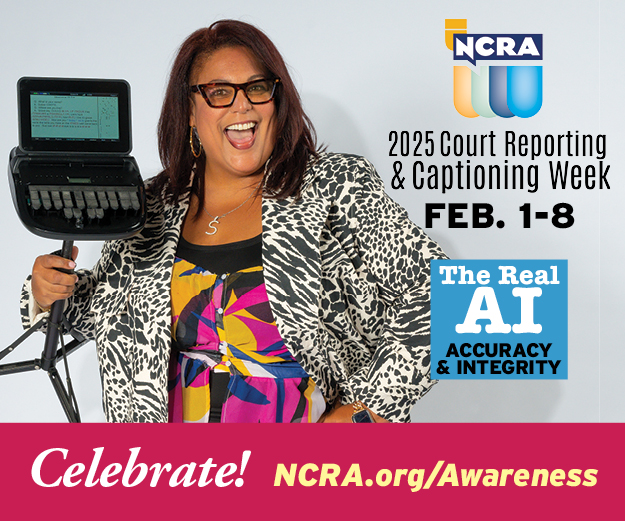Understanding the Essential Role of Court Reporting in Legal Process
Court reporting is commonly overlooked, yet it's vital in lawful procedures. Let's discover the basic functions of court reporting and its relevance in the lawful landscape.
The History of Court Coverage
Court reporting has a rich background that dates back to ancient human beings, where scribes made use of numerous methods to record talked words. The earliest types of shorthand emerged in Greece around 400 BC, permitting thinkers and political leaders to tape speeches quickly. As you relocate via background, you'll discover that the Romans adopted similar methods, improving them to document legal procedures. By the 16th century, contemporary shorthand systems began to form, making it possible for stenotype reporter to create exact transcripts efficiently.
In the 19th century, the innovation of the typewriter changed the career, making it simpler to develop clear records. The introduction of steno makers in the 20th century additionally progressed court reporting, permitting real-time transcription during trials. Today, stenotype reporter play a considerable duty in legal proceedings, guaranteeing that every word talked in the court room is properly recorded. Understanding this history highlights the importance of court coverage in maintaining a reasonable lawful system.
The Skills Needed for Court Reporters
As a court press reporter, you need strong typing skills to stay up to date with the busy dialogue of lawful process. Your ability to listen attentively is just as necessary, making sure every word is captured precisely. Grasping these abilities is key to delivering exact and trustworthy transcripts.
Competent Keying Capacities

Strong Paying Attention Abilities
Strong paying attention abilities are crucial for court reporters, as they must precisely catch spoken words in real time. You need to focus intently on the dialogue, getting nuances, tone, and context to assure every detail is taped properly. This skill assists you distinguish between speakers, understand legal jargon, and comply with intricate discussions. It's not almost listening to words; it's about comprehending and analyzing them promptly. You'll typically encounter different accents and speech patterns, so flexibility is vital. Exercising active paying attention strategies can enhance your capabilities; for circumstances, summarizing what you have actually listened to after conversations can enhance your abilities. Ultimately, strong paying attention skills make you an indispensable property in lawful process, guaranteeing clarity and accuracy in the court document.
The Innovation Behind Court Coverage
In the domain name of legal process, technology plays an essential function in boosting the accuracy and performance of court reporting. You're most likely aware of the conventional stenotype maker, yet modern court press reporters now use advanced software program that incorporates with these devices, allowing real-time transcription. This suggests you can have immediate access to the transcript as the procedures unfold.
Digital audio recording is one more technological improvement that's getting traction. It captures every spoken word, guaranteeing absolutely nothing is missed out on. Some press reporters utilize voice acknowledgment software, which can aid streamline the transcription procedure, though it still requires human oversight for precision.
Additionally, cloud-based storage permits simple access and sharing of transcripts, enhancing partnership amongst lawful teams. By leveraging these innovations, court reporters can supply premium, prompt records that are crucial for the lawful process. Accepting this technology not only enhances your understanding however additionally guarantees reliability in legal documentation.
The Court Reporting Refine

As lawful proceedings unfold, the court reporting procedure comes to be crucial in catching every detail accurately. You'll find that a court press reporter plays a crucial function by transcribing spoken words right into created text in real-time. When you enter the courtroom, the reporter is already prepared, furnished with specialized tools like stenographic machines and audio recording devices.
During the process, the reporter listens attentively, typing out everything said, from witness testimonies to lawyers' disagreements. You might observe them stopping briefly occasionally to ensure clearness or to request a repeat if something wasn't clear. After the session, the reporter evaluates the transcript, making necessary edits for readability.
This entire process not just assures a detailed document but also prepares you for future recommendation throughout appeals or case evaluations. In the hectic environment of a court, the court reporting procedure is necessary for maintaining a precise account of occasions.
The Importance of Precision in Transcripts
While a stenotype reporter's primary duty is to transcribe spoken words, the accuracy of these transcripts is imperative for the stability of legal proceedings. When you're included in a situation, you depend on accurate documentation Read Full Article to comprehend the events and debates provided. Any type of mistakes in transcription can cause misunderstandings, misinterpretations, or perhaps wrongful judgments.
Exact transcripts guarantee that every information is captured, providing a reliable record for judges, lawyers, and juries. This degree of detail is vital throughout charms or when referencing previous testimonies. If a records includes mistakes, it can threaten the whole legal process, potentially impacting outcomes.
Moreover, precise transcripts maintain the civil liberties of all parties included, promoting justness and openness. So, whether you're an attorney preparing for trial or a witness assessing your statement, you can trust that the court reporter's skill in accuracy plays a significant duty in your case's success.
The Duty of Court Reporters in Various Legal Setups
Stenotype reporter play an important role in numerous lawful settings, from trials to depositions and legal hearings. You'll find that their work assurances every talked word is properly caught, which is essential for the legal process. Recognizing just how their responsibilities vary across these environments can highlight their effect on the justice system.
Court Reporters in Tests
In any type of lawful test, you'll find that court reporters play an essential duty in capturing the procedures with accuracy and precision. They record whatever talked in the court room, guaranteeing that every word is recorded for future recommendation. This record comes to be vital for allures, enabling greater courts to assess the test's honesty. Court reporters should maintain focus and rate, typically making use of specialized tools to stay on top of fast-paced discussion. Their work sustains legal representatives, judges, and juries by providing a main account of testaments and debates. If discrepancies arise, the transcript acts as a dependable resource to clarify what was claimed. Ultimately, stenotype reporter aid promote the justice system, guaranteeing transparency and accountability throughout trials.
Depositions and Lawful Hearings
Beyond tests, stenotype reporter additionally play a crucial function in depositions and legal hearings. Throughout these procedures, they catch every spoken word, making certain an exact record of statements and conversations. You'll find that this precision is necessary, as depositions frequently serve as a structure for later disagreements in court. Stenotype reporter offer real-time transcription solutions, permitting lawyers to follow along and address any kind of concerns instantly. Their work enhances the performance of lawful hearings, making it easier for all these details events to refer back to the official record. Check Out Your URL Additionally, the transcripts they generate can be substantial for charms and other lawful procedures - court reporting. Simply put, court press reporters are vital in preserving the stability and quality of the legal document in depositions and hearings.
Future Fads in Court Coverage
As technology remains to develop, the future of court reporting assures to be formed by innovative devices and methods that enhance precision and efficiency. You'll likely see boosted use expert system and real-time transcription services, enhancing the reporting process. These improvements can help you access transcripts quicker, which can be crucial for your legal approaches.
Additionally, incorporating video conferencing and remote coverage will become extra usual, permitting you to get in touch with stenotype reporter from anywhere (court reporting). This flexibility can make depositions and hearings extra easily accessible, conserving both time and sources
You'll likewise notice an emphasis on electronic recordkeeping, which simplifies the storage space and retrieval of transcripts. With cloud-based remedies, you'll have the ability to share files securely and team up with your legal group in real-time.
Regularly Asked Concerns
What Is the Ordinary Income of a Court Reporter?
The average salary of a stenotype reporter differs by place and experience, yet you can expect it to vary from around $50,000 to $80,000 yearly. Lots of aspects influence this revenue, consisting of expertise and need.
How Do I Become a Licensed Court Reporter?
To end up being a certified court reporter, you'll need to complete a court reporting program, pass a certification test, and gain functional experience. It's essential to stay upgraded on market criteria and continuing education requirements.
What Sorts of Cases Do Court Reporters Cover?
Stenotype reporter cover various instances, including criminal trials, civil claims, depositions, and settlement hearings. You'll discover them documenting everything, making sure exact documents for courts, lawyers, and celebrations entailed, catching every word talked in lawful settings.
Are Court Reporters Required to Have a Degree?
Yes, court reporters typically need a level or certification in court coverage. Lots of programs use specialized training, ensuring you gain the abilities essential for accurate transcription and legal paperwork in different settings.
Can Court Reporters Work From Another Location?
